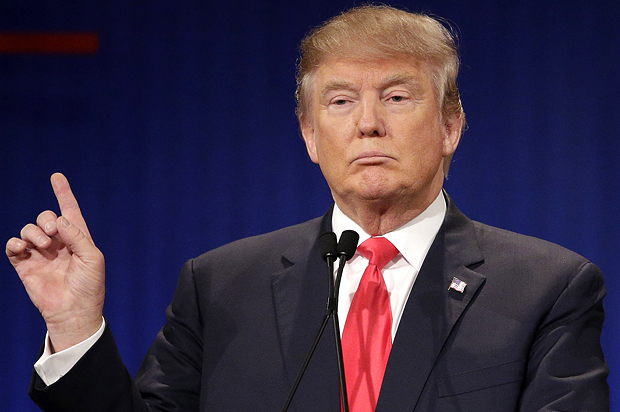November’s presidential election in America has proved unprecedented,
with a non-conservative lacking in any political experience crushing
the Republican Party’s establishment. Not only that, but Donald Trump
seems near-impervious to every scandal which has beset him since his
presidential campaign launched. The Donald may be one of the most
polarising figures in recent international political history, but his
appeal to many is undeniable. So, it must be asked, what draws people
to support Donald Trump?
The USA was borne out of the Founding Fathers’ dream for freedom from
authority, and freedom for the individual. This was to be in direct
contrast to British monarchical authority. As freedom of speech had
been limited by the British authorities, the First Amendment
guaranteed it. As the British Army had attacked the colonials for
their refusal to pay taxes to Westminster without representation in
Parliament, the Second Amendment allowed citizens to arm themselves
and form militias as self-defence against violently oppressive
governments. The exhaustive series of checks and balances on the USA’s
political institutions further serve to prevent any branch of
government becoming too strong, as do the considerable power afforded
to the individual states. This spirit of freedom, libertarianism and
anti-authority has endured, especially in the South and Mid-West.
However, these areas have taken the brunt of post-1960s realignment
where the Democrats became the voice of liberal America. This process
has resulted in many of the Founding Fathers’ sacred cows being struck
down in the eyes of these Americans as the growth of Federal
government has increased, imposing itself on individual states.
Examples of this are gun-control measures, the introduction of
universal healthcare, and a semi-activist Supreme Court declaring that
states prohibiting the practice of same-sex marriage was
unconstitutional. Freedom of speech is also seen as being curtailed in
the name of political correctness, avoiding offence, and preventing
“triggering”. Further away from home, the Obama administration’s
policy of rolling back American presence in abroad (read Islamic
world) has widely been regarded as a sign of weakness. At the same
time, innumerable blue-collar workers are struggling to make ends meet
as the industries they formerly worked in have been relocated out of
America and into Asia.
Recent years under Barack Obama – and George W. Bush (to a lesser
extent – have simply not worked for millions of Americans who are now
worse off than they were twenty or more years ago. Livelihoods have
been lost, the values on which their country were founded on are
seemingly being eroded, and its once great power is being weakened
from within. Only on presidential candidate stands against this, in
their eyes: Donald J. Trump. This is where much of his appeal stems
from.
Controversial British conservative commentator Milo Yiannopoulos put
it most simply, when explaining why he supported Trump: the system and
establishment were simply not working anymore, and the Donald
unequivocally promised to smash them. Trumps foreign policy? It
appeals to a rather simple, but passionate patriotism. The Great Wall
of Mexico may be ridiculous, but forcing Mexico to pay for it is a
clear statement of a return to the desire many foster for a strong
America. Banning all Muslim immigration? The statement behind this
policy is that America will do as it pleases, regardless of popular
trends or political correctness. Opposing TTP? Answering the call of
vulnerable American workers who feel abandoned by a
globalisation-inclined political establishment and ruling class. His
rallying call of “Make America Great Again” hits the nail on the head,
offering his voters exactly what they want.
Every time Trump blames a female interviewer’s tough line of
questioning on menstruation, refers to a politician he dislikes with a
racial slur (recently calling Senator Elizabeth Warren “Pocahontas”
because of her Native American heritage) or insults the family of a
deceased Muslim veteran, he cannot lose. Why? Because every statement
of that ilk is a direct assault against the perceived clamp-down on
freedom of speech many Americans despise.
However, one should not think that Trump is unstoppable. His antics
appeal to a very specific sector of society. He is preaching, or
performing his tricks, only to his church’s choir. Members of the
neighbouring congregation are less likely to be amused, and will in
fact probably despise him for what he does. Given that his pews are
almost solidly filled with Republicans rather than independents and
conservatively inclined Democrats, he would be wiser to modify his
tactics and engage in some real outreach.

